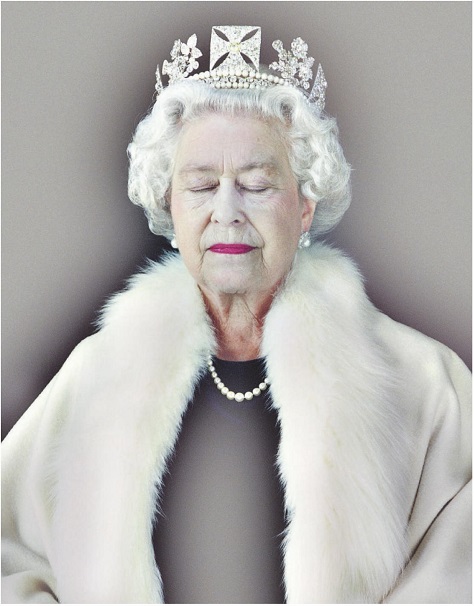 Photo credit to Chris Levine.
Photo credit to Chris Levine.
Today, Elizabeth II became the longest reigning monarch in British (or English) history.![]()
At the beginning of her 63-year reign, which today officially exceeded that of another queen, Victoria, Winston Churchill was prime minister of the United Kingdom, former prime minister Clement Atlee was still leader of the Labour Party and Harry Truman was just entering the final year of his presidency in the United States.
India was enjoying the fifth anniversary of its formal independence from Great Britain and some countries, like Belize, Uganda, Nigeria and Kenya, were still British colonies. The Soviet Union’s Joseph Stalin was still alive (though would die in just over a year), and the Cold War would sludge on for another 38 years. Mao Zedong would have nearly a quarter-century ahead of him as the ruler of Communist China. Charles de Gaulle was still six years away from founding France’s Fifth Republic, and the European Economic Community, the forerunner of today’s European Union, would not be formed until the 1957 Treaty of Rome — and it would be another 20 years before the United Kingdom would be permitted to join the EEC, over two of de Gaulle’s vetoes.
As of today, at least, the halfway point of Elizabeth’s reign is in 1984, when British prime minister Margaret Thatcher was still in her second term and US president Ronald Reagan had yet to win reelection. US basketball player Michael Jordan had just been drafted by the Chicago Bulls, and the world had never heard of Mariah Carey, Jay-Z, 2Pac, Britney Spears or Green Day.
Consider this: Diana, who married Elizabeth’s first son, Charles, the Prince of Wales, was a princess for only around one-fourth of Elizabeth’s reign — from her marriage to Charles in 1981 to her untimely Paris death in 1997. (But note that the British monarchy’s lowest point, in the second Elizabethan era, came in the early hours following Diana’s death — and that the media-savvy perspective of former prime minister Tony Blair, along with the saccharine ‘cool Britannia’ sugar high of New Labour’s first term, did much to restore the monarchy’s luster).
The very presence of Elizabeth Alexandra Mary of the House of Windsor is so staggering because, for more than 63 years, she has been such a reassuringly stolid face of the British monarchy that she is now the living embodiment of both what it means to be British and what it means to be a monarch. That’s not hyperbole. Of the 39 countries in the world that use monarchies (constitutional or otherwise), Elizabeth is the head of state for 16* of them!
All of which is a long way of saying that here in the year 2015, one way to think about the postwar era is simply to think of the age of Elizabeth — the new Elizabethan era.
Continue reading Will we think of the postwar era as the ‘New Elizabethan’ era?